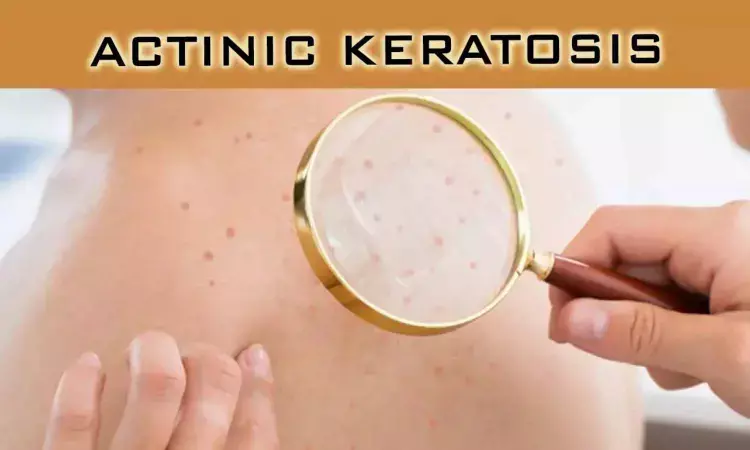- Home
- Medical news & Guidelines
- Anesthesiology
- Cardiology and CTVS
- Critical Care
- Dentistry
- Dermatology
- Diabetes and Endocrinology
- ENT
- Gastroenterology
- Medicine
- Nephrology
- Neurology
- Obstretics-Gynaecology
- Oncology
- Ophthalmology
- Orthopaedics
- Pediatrics-Neonatology
- Psychiatry
- Pulmonology
- Radiology
- Surgery
- Urology
- Laboratory Medicine
- Diet
- Nursing
- Paramedical
- Physiotherapy
- Health news
- Fact Check
- Bone Health Fact Check
- Brain Health Fact Check
- Cancer Related Fact Check
- Child Care Fact Check
- Dental and oral health fact check
- Diabetes and metabolic health fact check
- Diet and Nutrition Fact Check
- Eye and ENT Care Fact Check
- Fitness fact check
- Gut health fact check
- Heart health fact check
- Kidney health fact check
- Medical education fact check
- Men's health fact check
- Respiratory fact check
- Skin and hair care fact check
- Vaccine and Immunization fact check
- Women's health fact check
- AYUSH
- State News
- Andaman and Nicobar Islands
- Andhra Pradesh
- Arunachal Pradesh
- Assam
- Bihar
- Chandigarh
- Chattisgarh
- Dadra and Nagar Haveli
- Daman and Diu
- Delhi
- Goa
- Gujarat
- Haryana
- Himachal Pradesh
- Jammu & Kashmir
- Jharkhand
- Karnataka
- Kerala
- Ladakh
- Lakshadweep
- Madhya Pradesh
- Maharashtra
- Manipur
- Meghalaya
- Mizoram
- Nagaland
- Odisha
- Puducherry
- Punjab
- Rajasthan
- Sikkim
- Tamil Nadu
- Telangana
- Tripura
- Uttar Pradesh
- Uttrakhand
- West Bengal
- Medical Education
- Industry
Tirbanibulin Proven Safe and Tolerable for Larger Actinic Keratosis Fields, Expanding Treatment Options: Study

USA: Tirbanibulin ointment, at a 1% concentration, demonstrates good safety and effectiveness for treating actinic keratosis (AK) on areas up to 100 cm² on the face and scalp, a recent study published in the Journal of American Academy of Dermatology has concluded.
The study highlights that Tirbanibulin 1% ointment has the potential to be used in larger fields, which leads to expanding its applicability for patients with extensive lesions.
Tirbanibulin is approved for treating actinic keratosis in areas up to 25 cm². However, because actinic keratosis frequently impacts larger regions, there is a need for treatments that can address larger affected areas. Considering this, Neal Bhatia, Therapeutics Clinical Research, San Diego, CA, USA, and colleagues aimed to evaluate the tolerability and safety of tirbanibulin when applied to a field of approximately 100 cm2.
For this purpose, the research team conducted a single–arm study with adult patients having a treatment field on the face or balding scalp of 100 cm2 with 4-12 AKs. Patients received tirbanibulin 1% ointment to cover the treatment field once daily for five consecutive days. Safety was assessed by evaluating treatment-emergent adverse events (TEAEs) and tolerability was measured using a composite score of six local tolerability signs (LTS).
The study was performed with the participation of 102 patients. The trial was conducted from June 2022 to December 2022 in the United States by the Declaration of Helsinki and The International Council for Harmonization Good Clinical Practice guidelines, a 4-week screening, a 5-day treatment, and a 7-week response evaluation period were conducted. Till the completion of the assessment period on Day 57 safety, tolerability, and presence of Aks were evaluated.
They found the following results
· Around 96.1% of LTS were erythema and 84.4% were scaling, they are mostly from mild to moderate severity, and they return to baseline by Day 29.
· 5.8% of severe LTS were erythema and 8.7% were flaking/ scaling.
· At day 57 the mean total number of Aks decreased from 7.7 Aks at baseline to 1.8 Aks. 77.8% was a reduction in the baseline lesion.
"Local tolerability and safety profiles were well characterized in patients with 4-12 clinically typical, visible, and discrete AK lesions in a field of 100 cm2. These results support the safety of tirbanibulin 1% ointment for use in patients with actinic keratosis (AK) on the face or scalp in treatment areas up to 100 cm²”, the researchers concluded.
Reference:
https://doi.org/10.1016/j.jdin.2024.07.001
Deepanshi Bhatnagar (MSc Nutrition and Dietetics) is a professional with a master's degree in Nutrition and Dietetics from MRIIRS. With a strong academic background, she is well-versed in the principles of nutrition and dietary science. At Medical Dialogues, Deepanshi serves as the correspondent for fact-checking, where she is responsible for verifying and evaluating claims related to nutrition and diet, ensuring that all content is accurate, evidence-based, and scientifically sound.
Dr Kamal Kant Kohli-MBBS, DTCD- a chest specialist with more than 30 years of practice and a flair for writing clinical articles, Dr Kamal Kant Kohli joined Medical Dialogues as a Chief Editor of Medical News. Besides writing articles, as an editor, he proofreads and verifies all the medical content published on Medical Dialogues including those coming from journals, studies,medical conferences,guidelines etc. Email: drkohli@medicaldialogues.in. Contact no. 011-43720751


